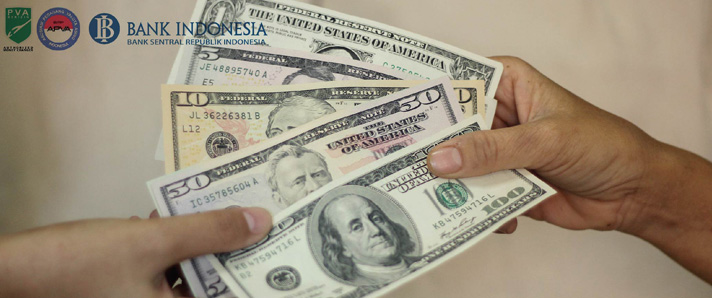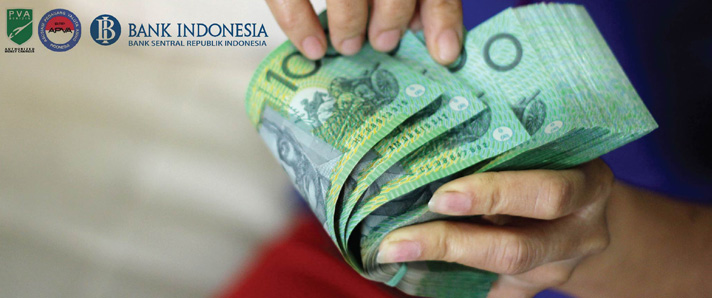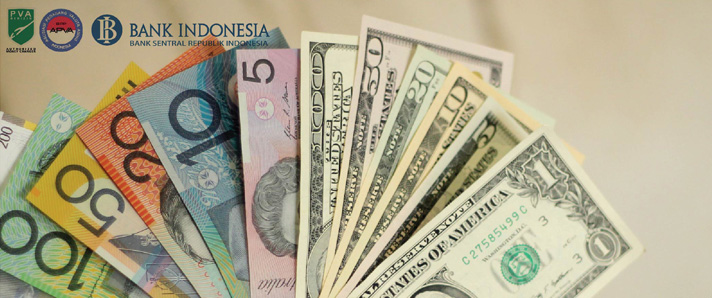Rupiah sinks to 5-year low as Trump tariffs, Prabowos fiscal plans rattle markets
With South-east Asias biggest economy caught in the US-China crossfire, Bank Indonesia now faces a growing dilemma: defend the rupiah or loosen policy further to prop up growth
Indonesias rupiah hit a five-year low on Friday (Feb 28) as foreign investors pulled out of stocks, spooked by escalating trade tensions led by Donald Trumps latest salvo and growing unease over Jakartas fiscal policies.
The turbulence comes as the US presidents escalating tariff war stokes fresh uncertainty for South-east Asias largest economy, caught in the crossfire as a key trading partner of China – the primary target of Trumps trade policy.
The rupiah slid 0.74 per cent to 16,568 against the US dollar – its weakest level since April 2020 – adding pressure on Bank Indonesia (BI) as it weighs further rate cuts this year even as it scrambles to stabilise the exchange rate.
The market rout comes as Trump doubles down on his trade war, reaffirming that 25 per cent tariffs on Canada and Mexico will kick in on Mar 4, while slapping an additional 10 per cent tax on China.
Abhay Gupta, rates and FX strategist at BofA Securities, noted that broad US dollar movements driven by tariff concerns have also affected the rupiah.
There is a growing perception that Bank Indonesia is increasingly focused on rupiah stability based on the nominal effective exchange rate, which suggests more tolerance for bilateral moves against the US dollar, he said.
That would reduce the need to defend the currency as much as before and create room for monetary easing, which is consistent with BIs shift towards a more pro-growth policy stance.
The rupiah has come under mounting pressure this year, following the central banks unexpected rate cut in January. The currency has fallen nearly 3 per cent year to date against the greenback, posting the sharpest decline among major emerging Asian currencies.
In a statement, Edi Susianto, executive director for monetary management at BI, said that the central bank will continue to intervene in the market to maintain the balance of foreign exchange supply and demand, aiming to uphold market confidence.
Jitters over fiscal manoeuvres
The tariff fight also unfolds against the backdrop of Indonesia President Prabowo Subiantos fiscal tightrope act, as he strives to fund his ambitious campaign promises despite the governments budget constraints.
Michael Wan, senior currency analyst at MUFG, said fiscal manoeuvres by Prabowos administration have heightened concerns among foreign investors, likely contributing to the rupiah’s underperformance alongside global factors such as tariffs.
BI recently announced plans to purchase government bonds to finance Prabowos housing programme, a move that has sparked fears over potential debt monetisation and raised questions about the countrys macroeconomic governance.
Given how USD/IDR has been moving closer to 16,450, and one month non-deliverable forward closer to 16,561, it may be difficult for BI to signal rate cuts at least in the near term, Wan wrote in a note.
The market is also cautious about the risks tied to the newly created investment management agency, Danantara.
Lionel Priyadi, fixed income and macro strategist at Mega Capital Indonesia, wrote in a report that investors are concerned over the fiscal risks linked to the planned 325 trillion rupiah (S$26 billion) capital injection to Danantara from the state budget through efficiency programmes.
Growth pains
Rising global trade tensions and weak domestic sentiment have weighed on Indonesias stock market over the past week, with the Jakarta Composite Index dropping 4.6 per cent.
Rully Arya Wisnubroto, senior economist at Mirae Asset Sekuritas, noted that growing concerns over the lack of a clear path to higher economic growth are unsettling investors.
BI should consider the possibility of further rate cuts during Ramadan or in Q2, despite the usual challenges posed by inflation and seasonal foreign exchange demand. This would help restore optimism about Indonesia’s growth prospects, he said.
The country, which has struggled with stagnating growth of about 5 per cent in recent years, has set an ambitious target of 8 per cent for the coming years under Prabowos administration.
Adding salt to the wound and further rattling investor sentiment, Morgan Stanley recently downgraded Indonesias stock market, cutting its rating on the MSCI index from equal weight to underweight.
Based on data from the stock exchange compiled by Bloomberg, foreign investors have recorded a net sell of US$1.05 billion, or 17.21 trillion rupiah, year to date.
The outflows have accelerated, with foreign investors dumping US$821.1 million or about 13.45 trillion rupiah of domestic equities in February alone.
State-owned banking giants, including Bank Rakyat Indonesia, Bank Negara Indonesia and Bank Mandiri, were among the biggest laggards, weighing heavily on the benchmark index.
Shares of state-owned banks are under pressure as Prabowo potentially wants them to finance an ambitious initiative to build three million homes annually.
The programme would expand housing subsidies on a larger scale, backed by government bond issuances.
Edi Chandren, lead investment analyst at Stockbit, warned that if the mandate is imposed, state-owned banks could face uncertainty over profit margins and asset quality, particularly those that have not traditionally focused on mortgage financing.
Source : businesstimes.com
Mar 1, 2025
| Bank note current rate: | ||||||||||||||||||||||||||||||||||||||||||||||||||||||||||||||||||||||||||||||||||||||||||||||||||||||||
| ||||||||||||||||||||||||||||||||||||||||||||||||||||||||||||||||||||||||||||||||||||||||||||||||||||||||
|
||||||||||||||||||||||||||||||||||||||||||||||||||||||||||||||||||||||||||||||||||||||||||||||||||||||||
| Last Updated :16 Oct 2025 - 03:28 PM | ||||||||||||||||||||||||||||||||||||||||||||||||||||||||||||||||||||||||||||||||||||||||||||||||||||||||
| These are indicative rates. For actual exchange rates, please visit or call our outlets at (0361) 4741 940. We reserve the right to change the rates at any time without prior notice. | ||||||||||||||||||||||||||||||||||||||||||||||||||||||||||||||||||||||||||||||||||||||||||||||||||||||||
|
|
||||||||||||||||||||||||||||||||||||||||||||||||||||||||||||||||||||||||||||||||||||||||||||||||||||||||
|
Please Note : Central Kuta does not sell foreign currencies in small denominations. Please Contact us for further information. |
||||||||||||||||||||||||||||||||||||||||||||||||||||||||||||||||||||||||||||||||||||||||||||||||||||||||



































